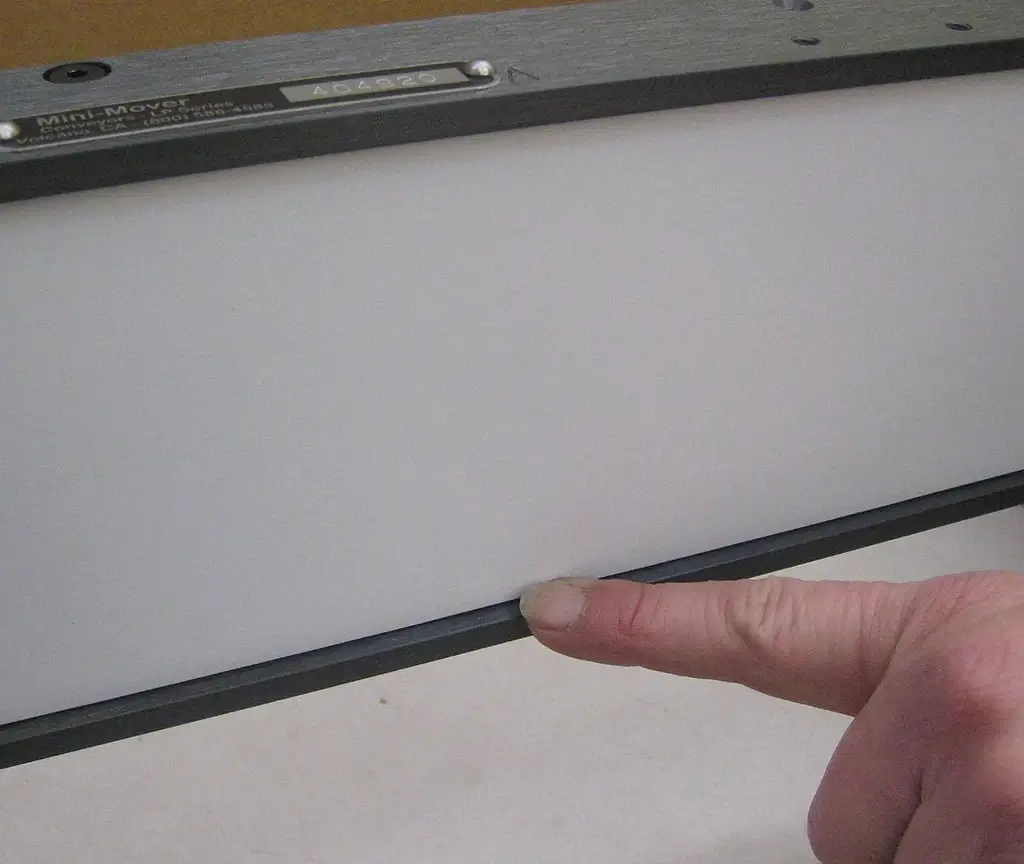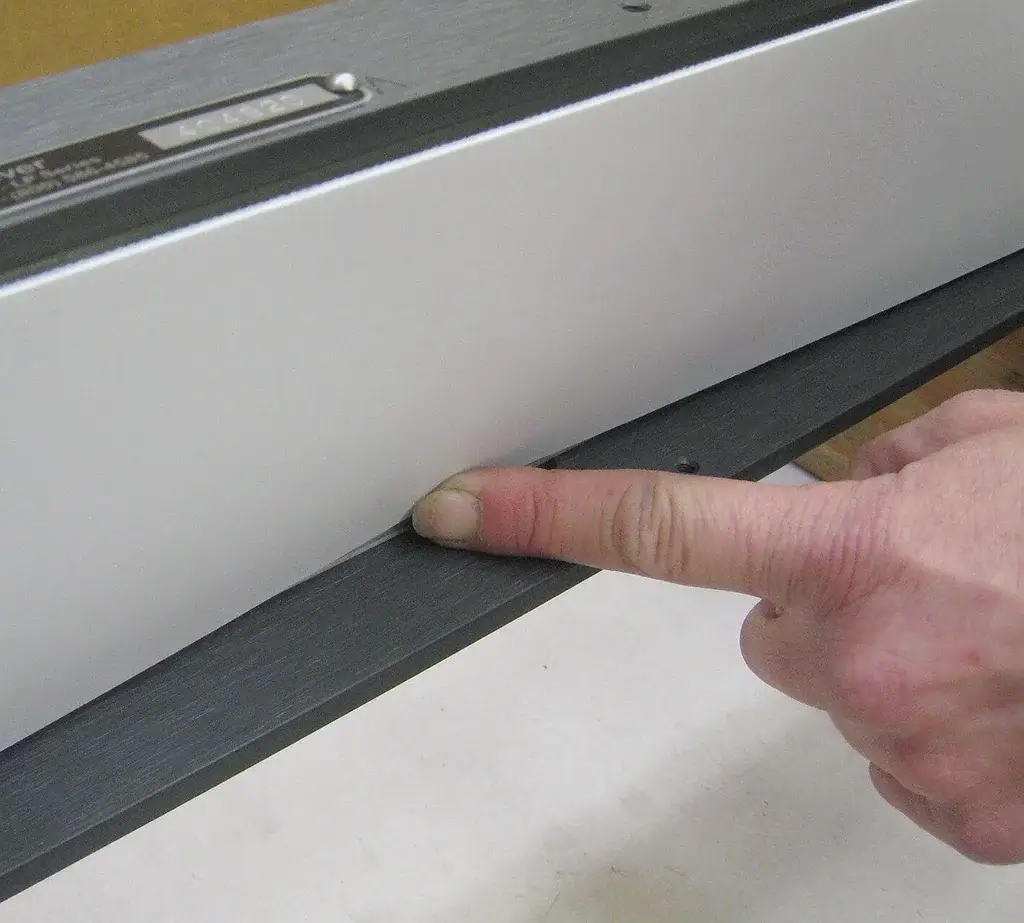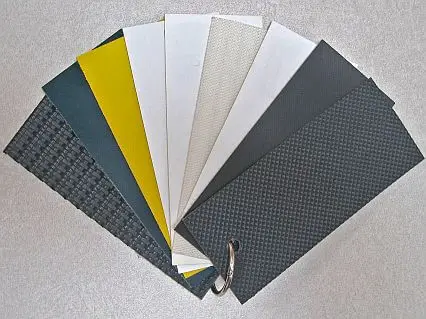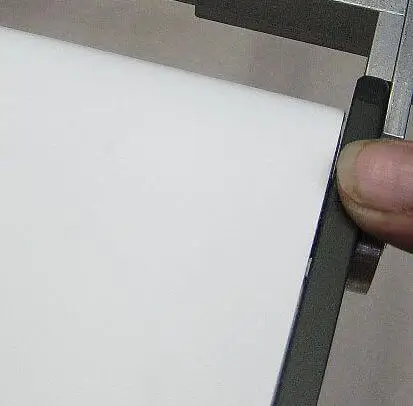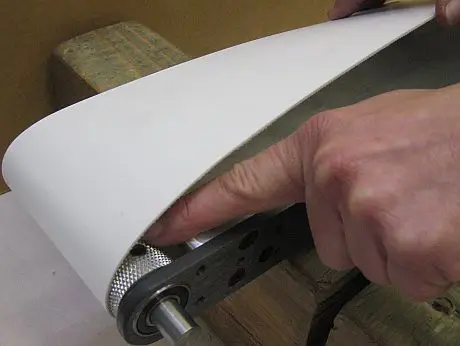Mini-Mover Maintenance Tip: “Tight isn’t always right.”
| Mini-Mover conveyors are built not only for rugged daily use but for simple periodic maintenance, which is recommended to keep each unit humming at the lowest operating cost. Many common maintenance issues we help users correct have often stemmed from overzealous tightening of the belting on the conveyor module. Extreme belt tension and improper tracking and alignment can cause undue stress on pulleys and related hardware, and so on — in a domino effect of needless premature wear. So, let’s start by looking at belt tensioning: What’s just right, and what’s too tight? |
| 1. First of all, when complete units are shipped from our facility, the belt on each conveyor is properly adjusted for immediate use — so establish your “adjustment benchmark” by close examination of the belt’s tension, right out of the box. Many users believe the belting should feel “tight as a drumhead,” which is not the case. It may actually seem a bit slack to first-time users of the Mini-Mover unit. |
| 2. The various belting materials we offer can have differing textures, thicknesses and other characteristics that, when in proper adjustment from our factory, may actually seem loose. But don’t yield to the temptation to immediately crank it tighter. Be sure to use the “adjustment benchmark” tip in Step 1 above as your guideline, especially since at a later time you may need to remove and replace the belt for maintenance. |
| 3. Check belt tension and alignment on a regular basis. The belt should be just tight enough not to slip while in operation, and it should track without touching the siderails of the unit. |
| As mentioned above, improper tension and/or alignment can cause a number of unnecessary wear problems. We find that these are the No. 1 cause of premature failures of moving parts. Belt misalignment may also be an indication of a hidden problem, such as debris build-up under the belt. So, along with routine inspection of belt tension and tracking, here are a few more tips: 4. Inspect the pulleys and remove any collected debris. Accumulated material can stick to the pulleys and cause the belt to misalign. 5. Remove any debris that may have collected from the the underside surface of the belting itself. |
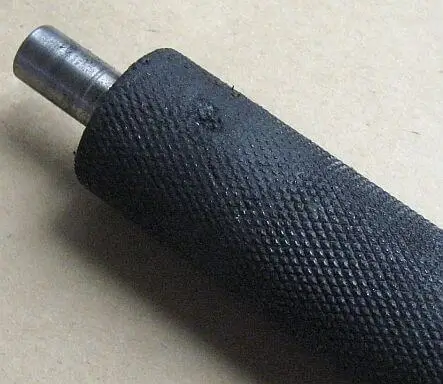 Unmaintained drive pulley on a Mini-Mover conveyor can reduce performance |
| Mini-Mover conveyors are assembled according to each customer’s specifications. Your individual application and shop environment will determine the necessary cleaning and adjustment frequency for your conveyor(s). Consult your owner’s manual for further cleaning and maintenance instructions. Contact our Customer Service Dept. with any questions, at 866-380-5218, or email [email protected] |

